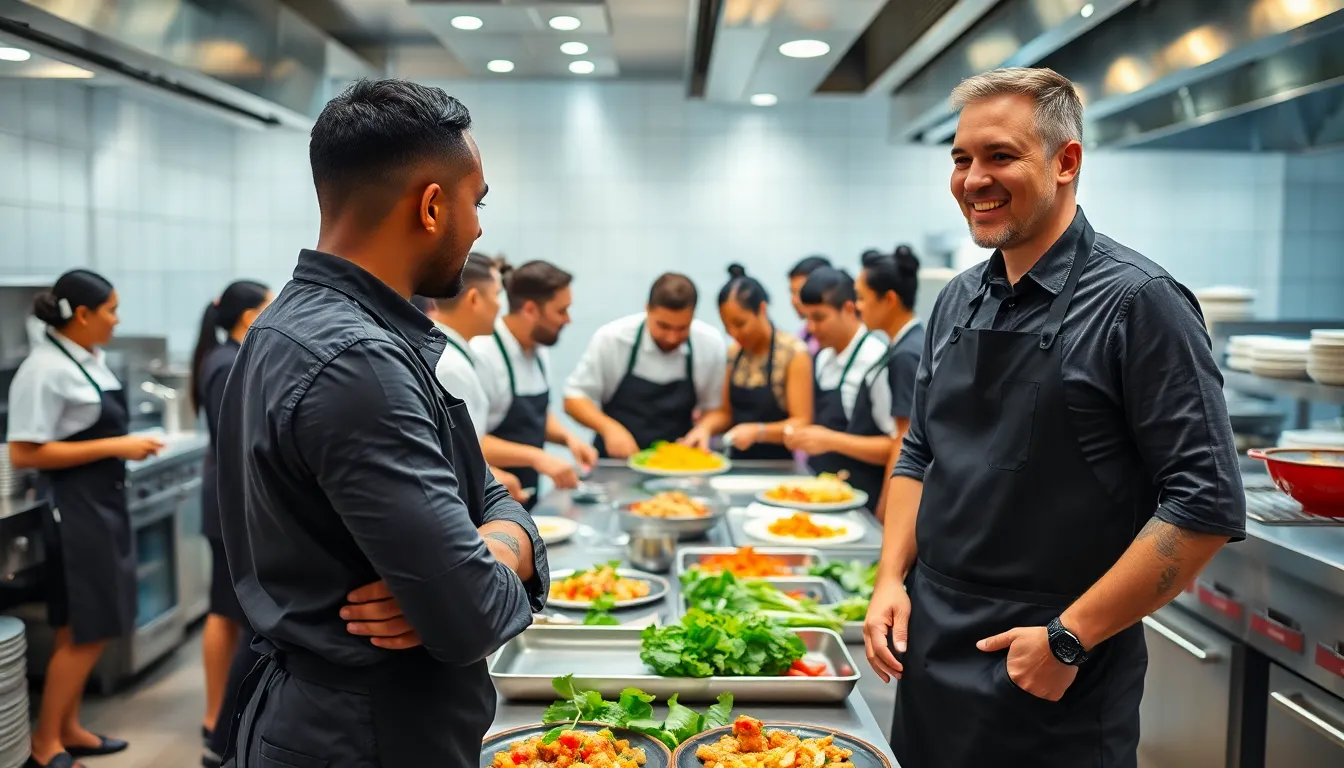Every successful restaurant tells a story, and at the heart of that tale lies effective leadership. It’s not just about dishing out delicious plates: it’s about serving up inspiration, managing chaos, and occasionally tackling that one waiter who thinks he’s the star of a reality show. In an industry where service meets sheer unpredictability, the importance of strong leadership is paramount. Strap in as we jump into crucial lessons that can elevate any restaurant’s leadership game, making those busy nights a bit more manageable (and a lot more enjoyable).
Table of Contents
ToggleThe Importance of Leadership in the Restaurant Industry

Leadership in the restaurant industry is like the secret sauce in a winning dish, impossible to define, but critical to success. With long hours and a fast-paced environment, restaurants require leaders who can motivate staff, manage stress, and keep operations smooth even when the dinner rush feels like a chaotic marathon.
Proper leadership not only impacts day-to-day functioning but also plays a vital role in shaping the restaurant’s culture. When leaders model professionalism and dedication, they inspire their team members to follow suit. Also, it fosters a sense of loyalty among employees, which correlates directly with customer satisfaction. After all, happy staff usually means happy guests, leading to repeat business.
In a nutshell, strong leadership is less about barking orders and more about creating an atmosphere where everyone feels valued and empowered to do their best work.
Key Leadership Qualities for Restaurant Managers
So what makes a great restaurant leader? It starts with a handful of essential qualities that elevate management beyond mere task delegation.
Visionary Thinking
Leaders should have a clear vision for their restaurant. This includes understanding the brand’s identity, its target market, and adapting strategies to stay relevant. Not every trend will add value, but recognizing the right ones can turn challenges into opportunities.
Emotional Intelligence
Emotional intelligence stands out as an essential attribute. Leaders need to sense and respond to their team’s emotions effectively. This means recognizing stress levels, celebrating victories, and knowing when a team member needs support or a pat on the back.
Decision-Making Skills
Quick and well-informed choice-making sets effective leaders apart. Whether it’s choosing menu items or solving staff disputes, leaders should feel confident in their choices, backed by both data and intuition.
Conflict Resolution
Restaurants can be breeding grounds for conflict due to high-stress conditions. Excellent leaders proactively manage disputes and mitigate tensions, ensuring a positive work environment and efficient service.
Building and Leading a High-Performing Team
Creating a high-performing team goes beyond just hiring capable staff: it involves continuous development and nurturing of talent. Here’s how effective leaders forge strong teams.
Effective Communication Strategies
Open lines of communication lay the groundwork for trust and transparency. Leaders should encourage team members to express their ideas and concerns, fostering a collaborative environment. Regular team meetings and informal check-ins create a safe space for dialogue, allowing for innovative ideas and immediate issue resolution.
Fostering a Positive Work Culture
Cultivating a positive atmosphere is crucial. Recognition plays a big part, whether it’s acknowledging hard work during a busy service or celebrating personal milestones. Encouraging team bonding through events or team-building activities can significantly enhance morale, making staff feel more connected to one another and to the restaurant’s mission.
When team members feel valued and engaged, they’re more likely to provide exceptional service that resonates with customers.
Navigating Challenges as a Leader
Even the best leaders encounter challenges. The key is adaptability and a proactive approach.
Adaptability in a Changing Environment
Restaurant trends, consumer behaviors, and even local regulations can change overnight. A successful leader must be ready to pivot strategies quickly. Keeping up with industry news and being open to innovative ideas can prepare leaders to deal with unexpected changes without losing momentum.
Embracing Feedback and Continuous Improvement
Constructive feedback should be welcomed like an old friend. Establishing a system where staff can voice their opinions, whether it’s about menu items or management practices, creates a culture of continuous improvement. Recognizing that there’s always room for growth turns challenges into stepping stones for greater success.








